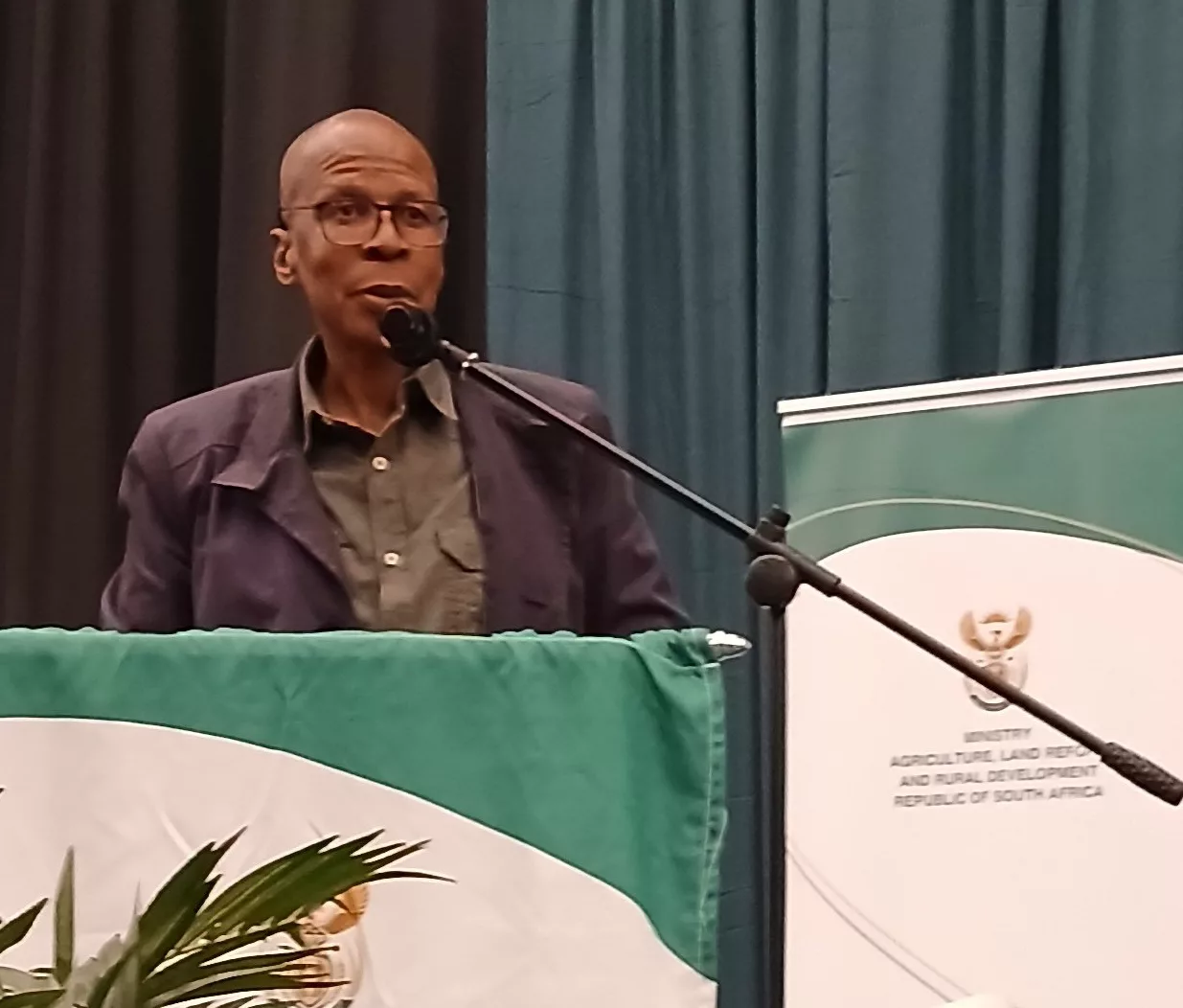|
Getting your Trinity Audio player ready...
|
Mr. Mooketsa Ramasodi, the Director General of the Department of Agriculture of the Republic of South Africa, who is also the Food Agriculture and Natural Resources Policy Analysis Network (FANRPAN) Board Member on Wednesday 4 June 2025 welcomed the launch of the FANRPAN Strategic Plan for 2025 to 2035.
The Government of South Africa has hosted the FANRPAN Regional Secretariat as an international organisation with full diplomatic status since 2003. The government bestowed the task of accommodating FANRPAN and superintending the host agreement on the Department of Agriculture, as the line ministry and Mr Ramasodi represents the Department of Agriculture on the Board of Governors.
“From a government perspective, I see a lot of value in the contributions of networks such as FANRPAN. I am also aware that this view is held by my counterparts across other African countries. As governments, we are awake to the reality that policy is not the preserve of the state actor. The task of transforming our agriculture and food systems requires collaboration not only amongst different government departments but also between the government and the various non-state actors. Only through collective approaches can we engender the requisite sense of ownership and urgency to move forward with agriculture and food systems transformation” Mr Ramasodi said.
He said that apart from implementing programmes in support of the Malabo commitments (CAADP 2.0), FANRPAN has played a pivotal role in supporting African countries to effectively engage with and respond to the Malabo Biennial Review (BR) process. Recognizing that the BR reports not only assess progress but also highlight performance gaps, FANRPAN has worked closely with national governments, regional bodies, and non-state actors to unpack the findings of these reports in a practical and accessible manner.
Through multi-stakeholder dialogues and technical support, FANRPAN has facilitated country-level reflection on the underlying drivers of weak performance across key indicators. More importantly, FANRPAN has supported the co-creation of targeted and evidence-based action plans aimed at addressing these shortcomings, fostering mutual accountability, and enhancing alignment with the CAADP commitments.
Mr Ramasodi said he was also aware of the extensive involvement of the network in the post-Malabo engagements and processes that led to the Kampala Declaration and CAADP Strategy and Action Plan (2026-2035).
“Secondly, I have had the privilege of witnessing FANRPAN providing technical assistance to the Department of Agriculture and the Agriculture Research Council of South Africa in the planning and convening of the G20 Meeting of Chief Agricultural Scientists (MACS G20). As you may be aware, South Africa holds the G20 Presidency for a year, from December 2024, and the government resolved to use its tenure to promote continental positions.
“For us in the agriculture and food systems sector, FANRPAN has been instrumental in organising and conducting regional consultative meetings in east, west, northern, central, and southern Africa, to harness the views of stakeholders. I am glad to say that last week we held a successful G20 MACS meeting, and emerged with a communique that was endorsed by all the G20 member states,” he said.
Against this background, he said the launch of the FANRPAN Strategic Plan 2025–2035 was not merely a ceremonial event but a call to action.
“It is an invitation to all of us, especially governments, to reflect on how we can better leverage the strengths of policy networks like FANRPAN in the next chapter of Africa’s agricultural transformation journey. As we transition from the Malabo Declaration to the Kampala Implementation Strategy, we must deepen collaboration, strengthen mutual accountability, and align our efforts to the shared vision of resilient, inclusive, and sustainable food systems.
“My department remains committed to this shared vision and stands ready to work hand-in-hand with FANRPAN and all partners in advancing this agenda. I encourage my peers across the continent to engage actively with this strategy, so that together, we may drive meaningful impact where it matters most—on the ground, in the lives of our farmers, our youth, our women, and our communities. Once again, I would like to welcome you all and hope that you will engage beyond the launch,” Mr Ramasodi added.
In his comments about the launch, Ishmael Sunga, the Chief Executive Officer of the Southern African Confederation of Agricultural Unions (SACAU), said for agriculture to succeed on the continent, policy must be given greater attention.






